|
Have you finished Ozark and are you waiting anxiously for the next instalment of The Last Dance? Netflix has provided a needed distraction for many of us during our respective home quarantines. Today in The Conversation Canada, Felix Arndt of the University of Guelph tells us how Netflix has capitalized on the coronavirus lockdown by adding millions of news subscribers, but suggests its reign as the top video streaming subscription service will be challenged in the post-pandemic world.
Also today:
Regards,
|
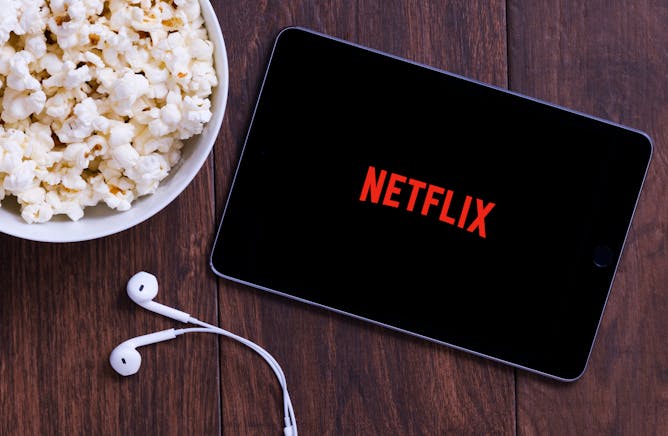
Netflix faces many new challengers in the subscription-based video streaming market.
Shutterstock
Felix Arndt, University of Guelph
Netflix has added millions more subscribers as people practice social isolation to control the coronavirus. But service's diverse menu of content is not an efficient business model.
|
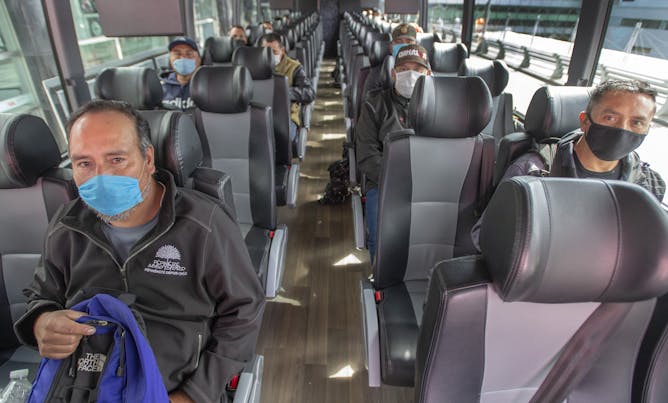
Migrant workers from Mexico maintain social distancing as they wait to be transported to Québec farms after arriving in April at Trudeau Airport in Montréal.
THE CANADIAN PRESS/Ryan Remiorz
Tanya Basok, University of Windsor; Glynis George, University of Windsor
The demands of social distancing during the coronavirus pandemic will make it increasingly difficult for migrant agricultural workers to meet their basic needs.
|

A man is seen through the Olympic rings in front of the New National Stadium in Tokyo.
(AP/Jae C. Hong)
Carla Edwards, McMaster University; Jane Thornton, Western University
For athletes, COVID-19 means more than cancelled competitions. Having their athletic goals put on hold and their training routines disrupted can take a toll on athletes' mental health.
|
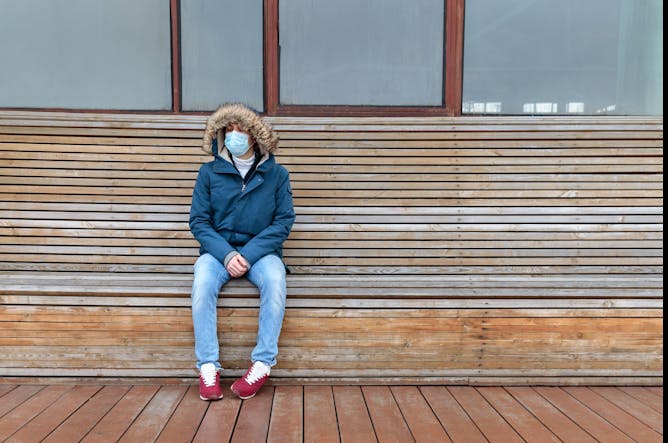
Our lives have been disrupted and impacted in unprecedented ways by the measures put in place to address the current pandemic.
(Shutterstock)
Carol Linnitt, University of Victoria
When the things we consider to be normal break down, outcomes that once seemed unlikely or extraordinary become possible.
|
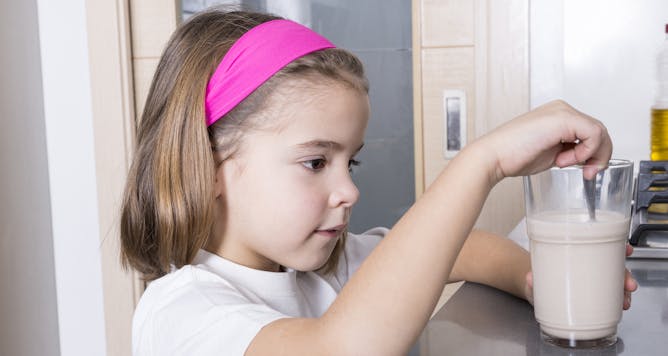
If you discuss ideal parts of cocoa to sugar, you’ve just discussed ratios.
(Shutterstock)
Jennifer Holm, Wilfrid Laurier University; Ann Kajander, Lakehead University
Improving a child's sense of numbers, and their understanding of probability, fractions, ratios, shapes and patterns, can all be incorporated into daily life or with simple games.
|
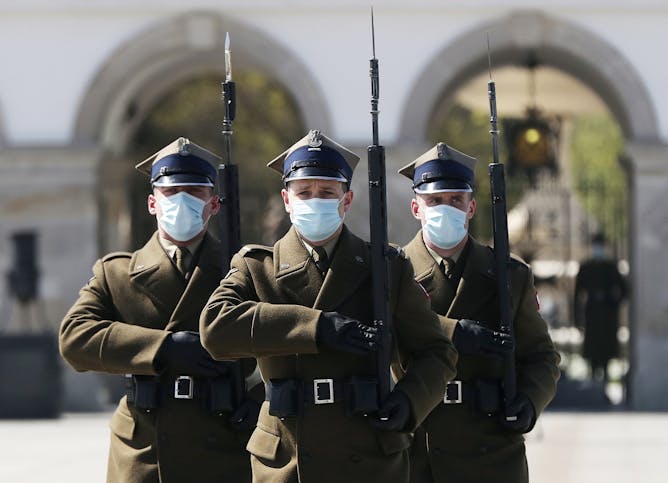
A military guard of honour wear face masks against the spread of the coronavirus by the Unknown Soldier’s Tomb in Warsaw, Poland.
(AP Photo/Czarek Sokolowski)
Julia M. Wright, Dalhousie University
From cholera outbreaks to public health actions, war metaphors have long been used to describe diseases, to show what we fear and to explain our world to ourselves.
|
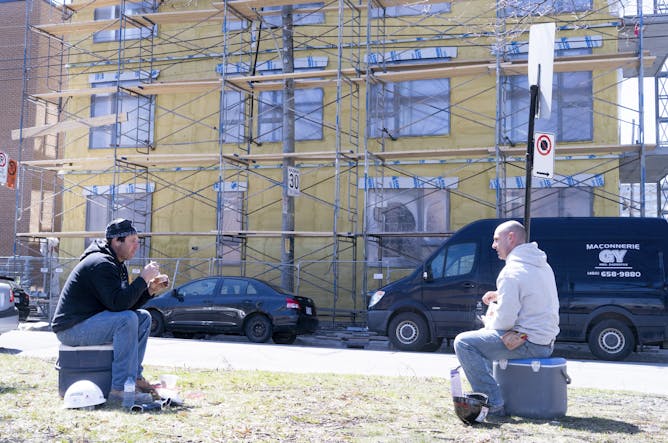
Deux travailleurs de la construction gardent leurs distances pendant leur pause déjeuner à Montréal, le 20 avril 2020. Mais le lien social perdure.
La Presse Canadienne/Paul Chiasson
Joris Arnaud, École nationale d'administration publique (ENAP); Julie-Maude Normandin, École nationale d'administration publique (ENAP); Marie-Christine Therrien, École nationale d'administration publique (ENAP)
Il ne faut plus parler de distanciation sociale, mais de distanciation physique tout en restant connectés socialement.
|